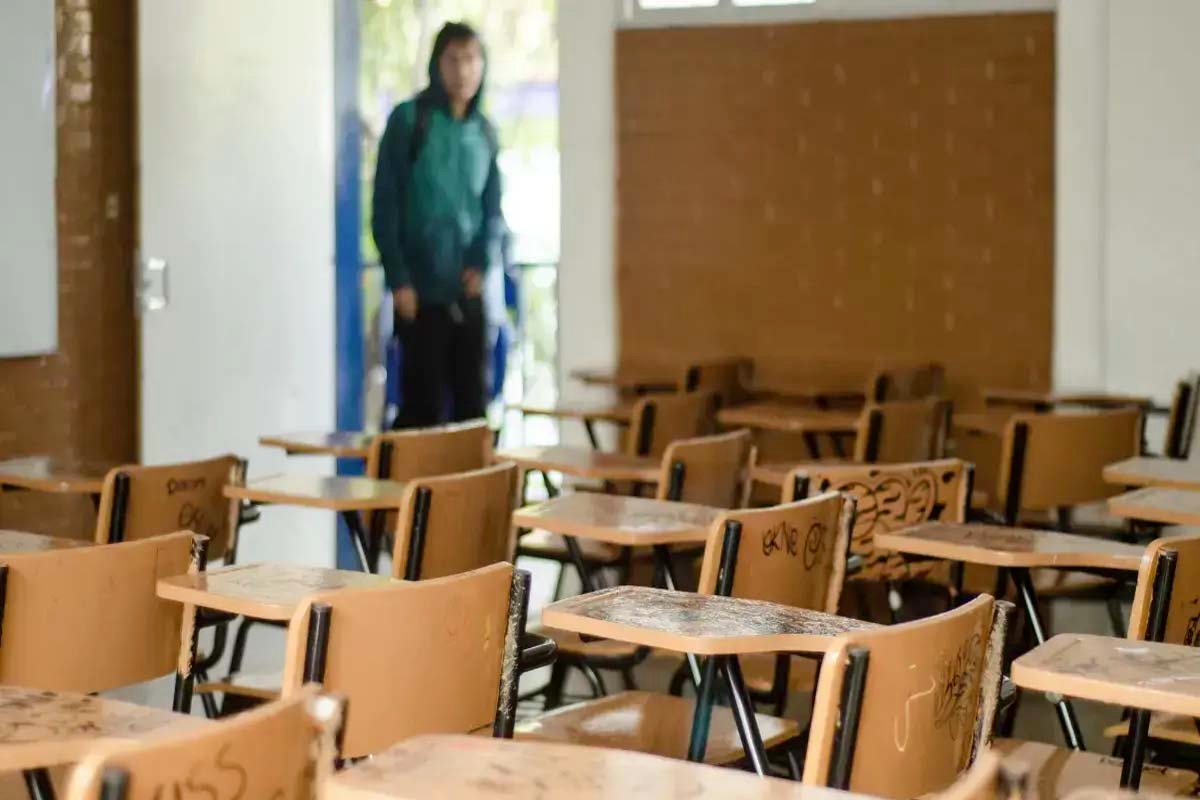“School Misses You”: Controversy over program to combat school dropouts

The head of the Ministry of Public Education (SEP), Mario Delgado, presented the pilot program "La Escuela te Extraña" (School Misses You) to the Chamber of Deputies, a strategy that seeks to reduce school dropout rates among high school students.
The central objective is to identify, contact, and facilitate the return of young people who have dropped out of school, through actions that include phone calls, home visits, and analysis of personal or socioeconomic causes.
However, beyond the intention of reducing school dropout rates, the initiative has generated strong controversy among teaching staff, who believe the new tasks go beyond their job descriptions.
The controversy arose when it was announced that teachers would be responsible for visiting the homes of students who had dropped out of school.
Many teachers expressed their dissatisfaction, believing that this task exposes them to unnecessary risks, especially in areas with high levels of insecurity and the presence of organized crime.
They also stated that their workload is already considerable, as in addition to teaching classes, they must prepare plans, grade projects, prepare materials, and perform administrative tasks. For them, the new program represents an obligation beyond their responsibilities.
During his appearance before the Chamber of Deputies, Mario Delgado defended the strategy, stating that the education system has sufficient information to identify students who drop out.
"We have his phone number, his address, his name, we know where his parents live. Why wouldn't we go after him?" he said.
The official noted that most dropout cases occur in January, just after the December holidays, and that for years the education system ignored those who didn't return to classes.
According to Delgado, the pilot program implemented in 2025 was "very successful" and will be implemented massively throughout the country starting in January 2026 as a national upper secondary education policy.
The plan not only seeks to bring students back into the classroom, but also to create new high schools in states with high educational demand and expand scholarship programs.
The SEP aims to offer flexible alternatives for young people who dropped out of school for economic, family, or emotional reasons, strengthening academic and psychological support.
However, teachers' criticisms reflect a deeper structural problem: the lack of human and material resources to meet all the demands facing the Mexican education system.
Among the proposals put forward by the teaching profession is to make the granting of scholarships conditional on regular class attendance , similar to programs in other countries.
Currently, the Benito Juárez Scholarship only requires enrollment in the school year, with no performance or attendance requirements. Teachers argue that including these criteria could strengthen students' commitment to their education.
Meanwhile, the debate continues: To what extent is it the teacher's responsibility to ensure the return of their students?
“La Escuela Te Extraña” (The School Misses You) was created with the intention of addressing one of the most serious problems in the Mexican education system: school dropouts.
However, the proposed method has revealed tensions between authorities and teachers, who demand to be heard before implementing policies that directly affect them.
The SEP's challenge will be to balance its commitment to education with respect for teachers' working conditions, ensuring that the return to school doesn't become an additional risk for those who teach.
La Verdad Yucatán





